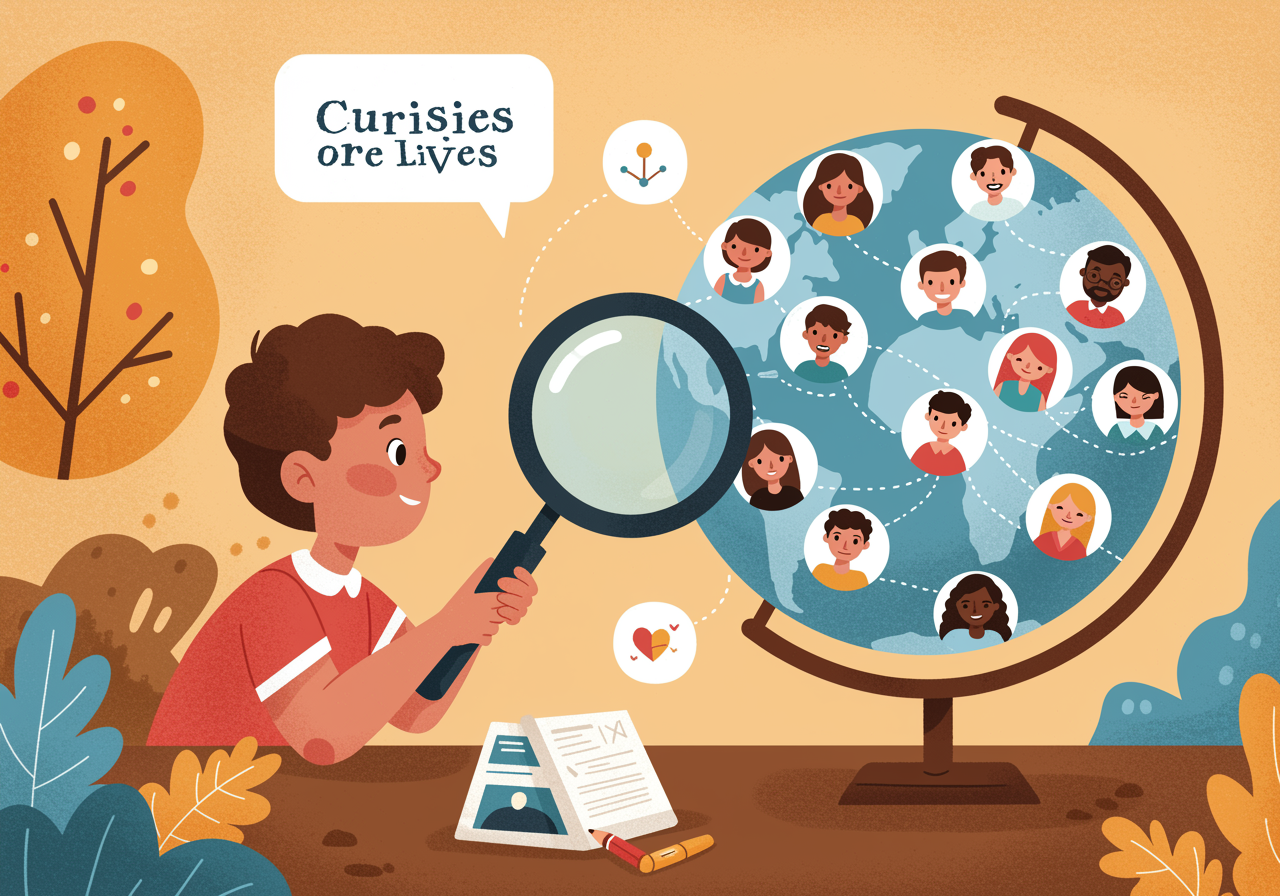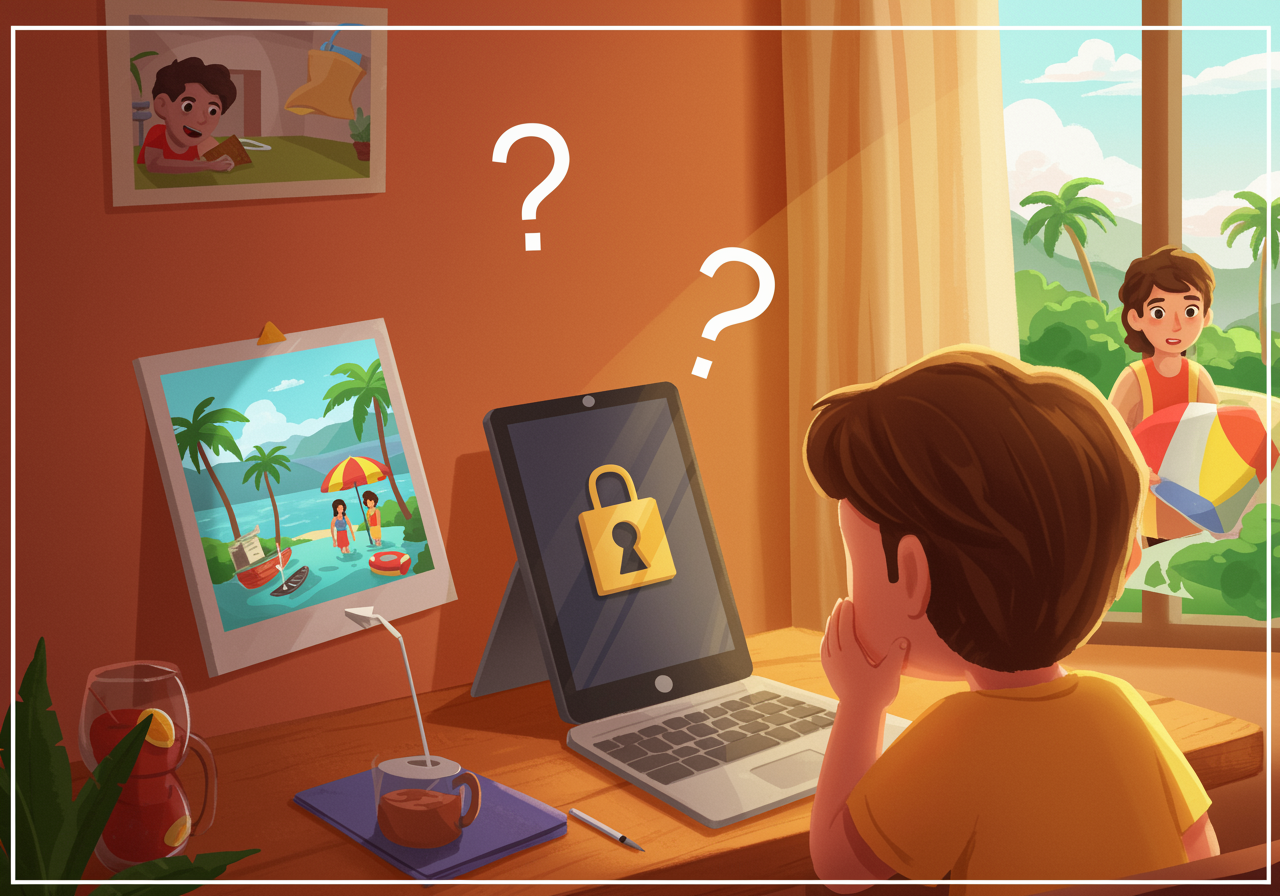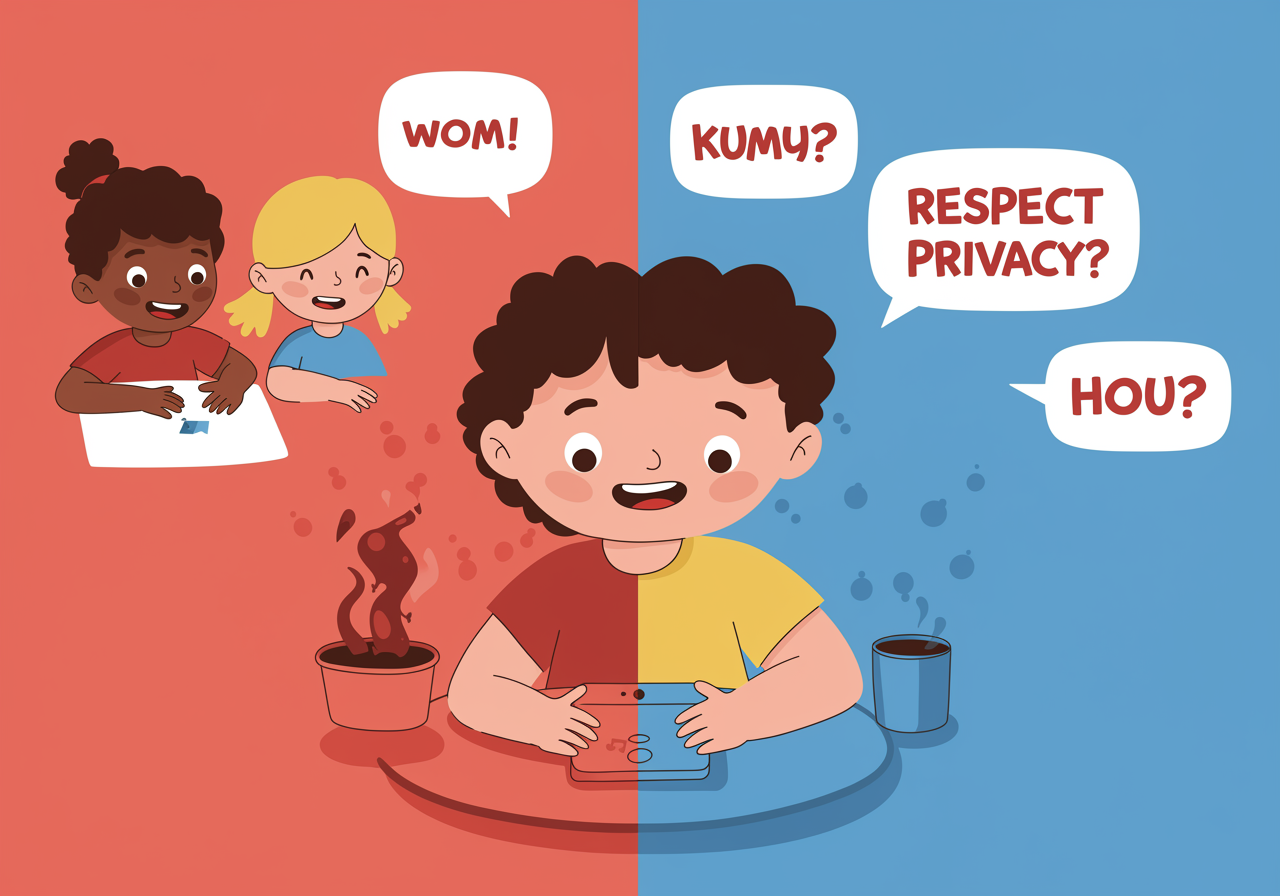The Curiosity vs. Privacy Challenge: When Wanting to Know Goes Too Far

Exploring the fine line between healthy curiosity and digital snooping
Discover how to satisfy your natural curiosity while respecting others’ privacy in our always-connected world.
Overview
Think about it – we're naturally curious creatures! We want to know what our friends are up to, what celebrities are doing, and what's happening in the world. But in our digital age, we can find out almost anything about anyone with just a few clicks. This creates a tricky situation: How do we balance our natural curiosity with respecting other people's right to privacy? This conversation helps families explore when curiosity is healthy and when it crosses the line into invasion of privacy.

Understand in 30 Seconds
Get up to speed quickly
- Curiosity is Natural: Humans are naturally curious – it's how we learn and connect with others. Being interested in people's lives isn't bad!
- Digital Changes Everything: The internet makes it easy to find personal information instantly, but just because we can doesn't mean we should.
- Public vs. Private: There's a big difference between information someone chooses to share publicly and private details they want to keep to themselves.
- The Golden Rule Applies: Ask yourself: Would I want someone digging into my private life this way? If the answer is no, don't do it to others.
Real Life Scenario
Situations you can relate to
Imagine your friend posts a photo from a family vacation, but you notice something interesting in the background – maybe their address on a package or a family member who looks upset. Your curiosity kicks in and you want to know more. You could easily search for more details online, zoom in on the photo, or ask around. But here's the question: Just because you can find out more, should you? What if that family member was going through something private? What if your friend only meant to share the fun vacation moment, not everything else in the photo? This is the exact challenge we face every day online – our natural curiosity meets unlimited access to information.

Role Play
Spark a conversation with “what if” scenarios
What if you discovered your favorite YouTuber's real address was posted online by someone else?
- Role play: One person plays the YouTuber, the other plays a fan. Discuss how the fan should handle having this private information and what the YouTuber might be feeling.
What if a classmate's parents were getting divorced, but they hadn't told anyone at school yet?
- Role play: Role-play how to handle knowing private information about someone when they haven't chosen to share it. Practice respectful responses.
What if you found out embarrassing information about someone from their old social media posts?
- Role play: Discuss the difference between information someone forgot was public versus information they never intended to share. Practice empathy and respect.
FAQs
Frequently asked questions people want to know
Is it okay to look up information about celebrities online?
It depends on the source! Information they share themselves or through official channels is fair game, but private details from unauthorized sources cross the line.
What if I accidentally see private information about someone?
Don't share it, don't act on it, and don't dig deeper. Sometimes we stumble across things – the key is what we do next.
How do I know if my curiosity has gone too far?
Ask yourself: Am I using information someone didn't choose to share? Would I feel violated if someone did this to me? If yes, step back.
Examples in the Wild
See how this works day to day
- Taylor Swift's fans respect her privacy by not sharing her personal address even when paparazzi photos reveal location details (Entertainment Weekly)
- Students created privacy guidelines for their school social media after a bullying incident involving shared private messages (Common Sense Media)
- TikTok influencers are speaking out about fans showing up at their homes after addresses were shared online (Teen Vogue)
- A viral video showed how easy it is to find personal information online, leading to new digital literacy programs in schools (EdTech Magazine)
In Summary
What you should know before you start
- Curiosity is natural and healthy, but it needs boundaries in the digital age
- Just because information is accessible doesn't mean it's meant to be public
- Always consider how you'd feel if someone investigated your private life the same way
- Respect people's right to choose what they share and keep private
Pro-tip for Parents
You got this!
If your teen seems to know a lot of personal details about someone, don't immediately lecture about privacy. Instead, ask curious questions: 'How did you find that out?' and 'How do you think that person would feel knowing you have that information?' This helps them think through the ethical implications themselves rather than feeling defensive.

Keep an Eye Out For
Find these examples in everyday life
- Celebrity privacy debates in the news – great conversation starters about boundaries
- Stories about social media oversharing or privacy breaches among teens
- Your teen mentioning detailed information about classmates or online personalities they follow
Explore Beyond
Look up these related research topics
- Digital footprints and what information we leave online
- The psychology of curiosity and why humans are naturally nosy
- Media literacy and how to evaluate what information is trustworthy